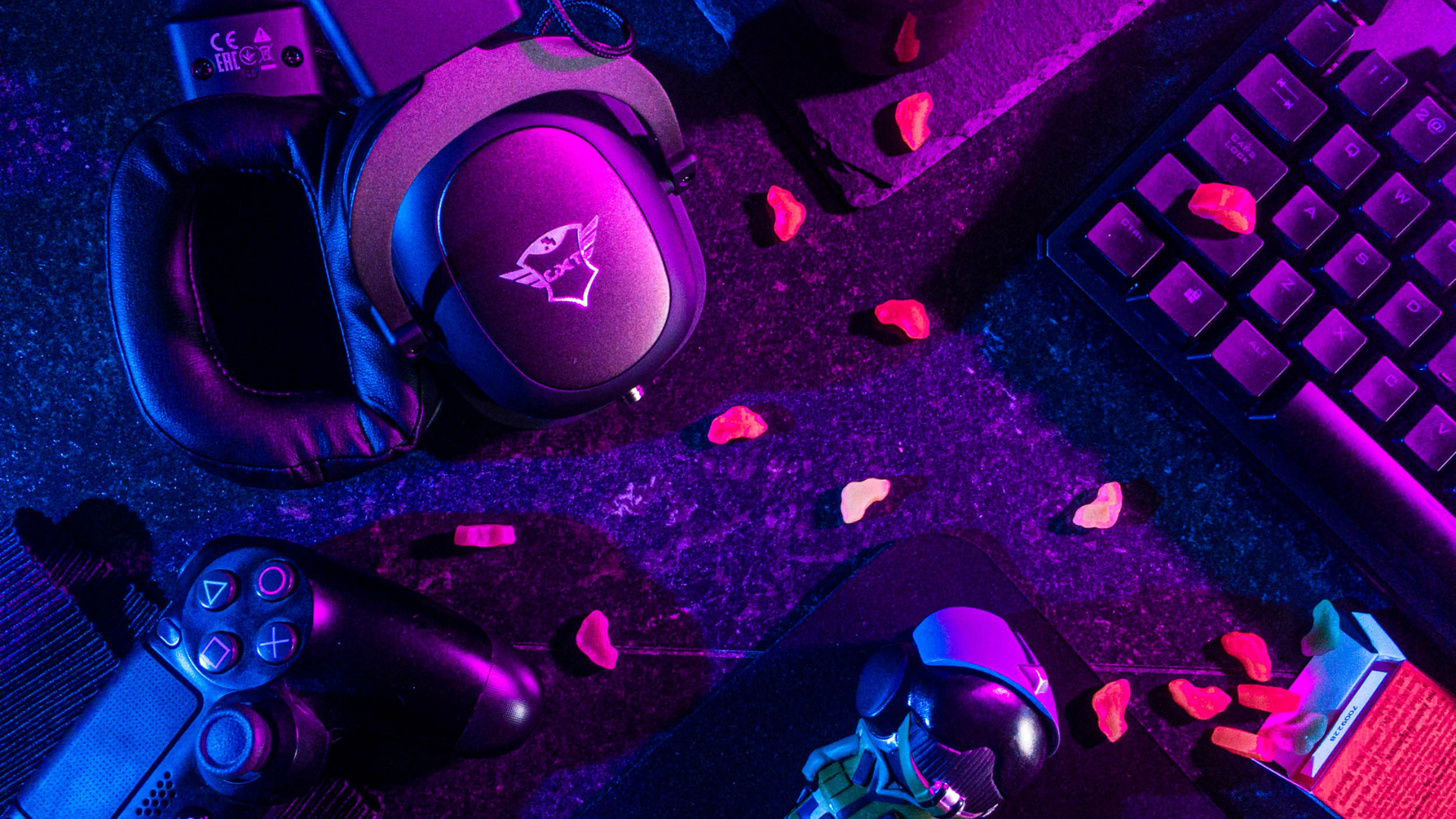Gaming has become a popular way to blow off steam, and for good reason. Whether you’re playing video games for fun or to compete, they offer an outlet for all your emotions. Below, we’ll discuss how gaming can vent out your anger, and provide some tips on how to do it safely.
How Does Gaming Affect the Brain?
Gaming can provide an enveloping experience that immerses the player in the game world. This can help to reduce the amount of stress that the player is feeling. Some studies have shown that gaming can also improve cognitive skills.
For example, gamers who are better at spatial navigation tasks tend to be better at playing video games that involve navigation. This suggests that gaming may improve certain aspects of cognitive function.
Now, there are various ways and genres of games that can help with improving the cognitive function of our brains. These can range from puzzle games to racing games. Let’s take a closer look at how each of these game types can actually help our brains get better at thinking.
Puzzle games often present players with challenges that require creative problem-solving. By experimenting with different strategies and approaches to solve puzzles, players can enhance their ability to analyze problems, identify patterns, and devise solutions. This can translate to improved problem-solving skills in real-life situations.
As for racing games, they require players to quickly process visual information, such as obstacles, turns and other vehicles on the track. This can improve visual processing speed and spatial awareness.
Overall, puzzle games, driving games and gaming as a whole can have many benefits for mental health and cognitive function. It can be a great way to relieve stress and anger, and it seems to also improve some aspects of mental health. At the same time, it is important to note that while gaming can offer cognitive benefits, moderation is key as with most things and that the benefits of gaming may be more visible when combined with other activities that promote cognitive health, such as physical exercise, social interaction and lifelong learning.
Medical Disorders Associated With Gaming
Several health conditions can be linked in gaming, both for the people who play and for those who watch. Gaming can lead to addiction in some cases, but it has also been connected to improved mental health in others. Here are some health conditions that have been correlated to gaming:
Depression
One study found that playing video games may help improve mental health by providing an outlet for pent-up anger and frustration. Playing games has also been shown to increase levels of dopamine and serotonin, which are chemicals that are responsible for happiness and well-being.
Anxiety
Another study found that people who frequently played video games showed reduced levels of anxiety compared to those who didn’t play video games. This was likely because they provide a sense of accomplishment and social interaction.
ADHD
According to one study, children who played video games regularly had lower rates of Attention Deficit Hyperactivity Disorder. This is likely because playing video games requires focus and concentration, two skills that are often impaired in people with ADHD.
Video Game Addiction
Gaming can become an addiction in some cases, leading to problems such as poor sleeping habits, withdrawal symptoms when stopped from playing, and even cravings for the game itself. Remember, not everyone will experience these effects, but it’s important to be aware of them.
If you are having any of these issues, it may be helpful to talk to your doctor about gaming. They may be able to recommend modified gameplay or other activities that can help take your mind off of negative thoughts while still enjoying the game.
Physical Health Issues Linked With Gaming
Increased Risk of Obesity
Extended gaming sessions that involve prolonged periods of sitting can significantly contribute to a sedentary lifestyle, posing a considerable risk of obesity due to the minimal physical activity and calorie expenditure involved. This lifestyle affects one’s weight but can also have broader implications for health, including an impact on testosterone levels. Low physical activity is linked to decreased testosterone, which is vital for maintaining muscle mass, bone density, and overall well-being. For individuals experiencing symptoms associated with low testosterone, such as fatigue, decreased libido, and weight gain, testosterone replacement therapy (TRT) might be a viable solution to consider. Seeking TRT Weston, or a reputable clinic in your city, could offer a way to address these hormonal imbalances.
Muscular Atrophy
Extended gaming sessions often involve minimal movement, resulting in muscular atrophy. Muscles require regular use to maintain strength and tone, and the absence of physical activity can lead to weakened and underdeveloped muscles.
Cardiovascular Issues
Lack of physical activity is linked to cardiovascular problems. Regular exercise is crucial for maintaining a healthy heart and circulation. Prolonged sedentary behavior can contribute to issues such as high blood pressure and increased risk of heart disease.
Eye Strain and Disruption of Sleep Patterns:
Digital Eye Strain
Gaming involves prolonged focus on screens, leading to digital eye strain. Symptoms include eye fatigue, dryness, and headaches. The constant visual concentration can contribute to discomfort and negatively impact eye health.
Disruption of Sleep Patterns
Exposure to the blue light emitted by screens can disrupt circadian rhythms and sleep patterns. This can lead to difficulties falling asleep, poor sleep quality, and overall sleep disturbances.
Carpal Tunnel Syndrome
The repetitive motions associated with constant mouse and keyboard use in gaming can contribute to carpal tunnel syndrome. This condition affects the wrists and hands, causing pain, numbness, and tingling.
Back and Neck Pain
Extended periods of poor posture during gaming can lead to back and neck pain, causing musculoskeletal issues. Additionally, prolonged discomfort may necessitate therapeutic interventions such as massage therapy, accessible by searching “massage near me” to alleviate tension. Likewise, over-the-counter medicine can offer temporary relief, but a more comprehensive solution may lie in physiotherapy.
Put simply, gaming can disrupt normal lifestyle routines, including meal schedules, exercise routines, and regular responsibilities. This can lead to an imbalance in daily life activities.
In summary, addressing the potential physical problems associated with prolonged gaming involves recognizing the need for moderation, incorporating regular breaks, maintaining proper ergonomics, and adopting a balanced lifestyle. Balancing gaming with physical activity, healthy sleep patterns, and maintaining social connections is essential for overall well-being.
Ways to Stay Healthy While Gaming
Try to Get Up and Move Around Every Hour or So
If you’re sitting in one spot for too long, your blood circulation will start to suffer. Getting up and stretching your muscles will also help keep you alert and motivated.
Use a Headset With Good Audio
Not only are headsets better for gaming immersion, but they can also improve your hearing when it comes to game audio cues. This means you’ll be more aware of enemies lurking in the shadows or footsteps coming up behind you.
Avoid Eating Junk Food While Gaming
Eating junk food while gaming isn’t just annoying, it can ruin your gameplay experience. These high-fat foods and snacks will sap energy and cause difficulty in concentrating on the game. So it is better to stick to water, fruits, vegetables, and healthy grains instead!
Restrict Yourself From Social Media While Gaming
Checking social media during a game can interfere with player focus and concentration. Resist the urge to check Facebook or Twitter throughout your session. You won’t regret it!
Make a Gaming Cushion
If you find yourself frequently getting up to move around or take breaks, make sure to invest in a gaming cushion. This type of cushion is designed to keep you comfortable while you’re sitting in your chair for extended periods.

